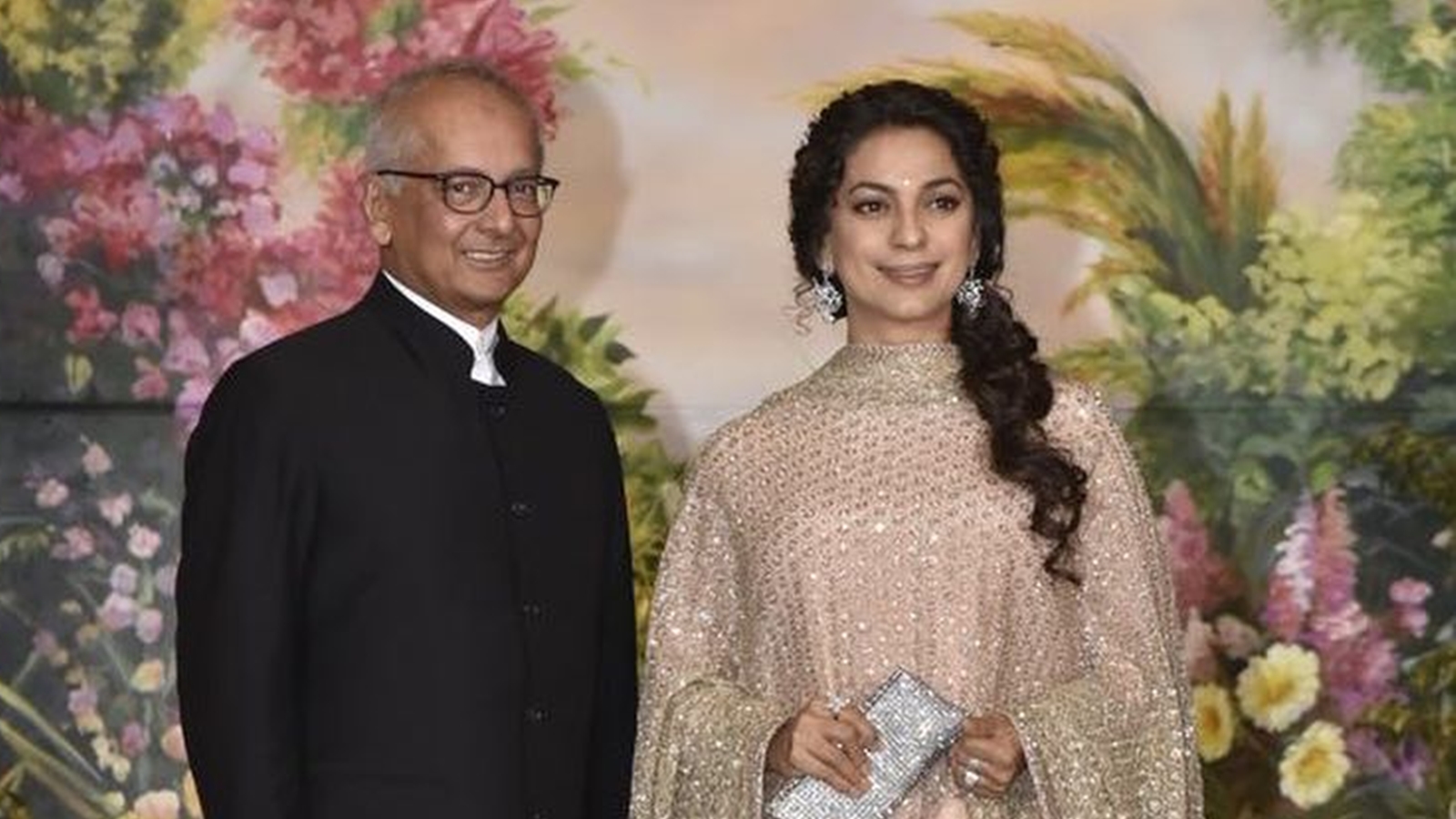[ad_1]
There is a scene in Chandu Champion where the protagonist, Murlikant Petkar (Kartik Aaryan), is lured into an interview during a sports summit in Tokyo. This is Petkar’s first time abroad — more on that later — and his relationship with English is about as strong as director Kabir Khan’s equation with the idea of subtlety. He’s nervous, but he agrees to the interview, mainly as an excuse to spend a few minutes with the attractive journalist who’d invited him. The scene is played for laughs — partially directed at Petkar’s struggles with the language barrier, and partially at his endearing innocence in the face of female beauty. All of this distracts from the real reason why he’s in Tokyo, and comes across essentially as a version of that idli-dosa detour in Khan’s previous film, the equally messy sports drama 83.
Khan presented that film’s most dramatic sporting sequence — Kapil Dev’s un-filmed, un-telecast winning knock against Zimbabwe at the 1983 World Cup — partially through the perspective of a teammate who was forced to control his pee because he was witnessing history. The scene ended with the team’s manager standing on the roof of the stadium, the music swelling in the background as the Tricolour waved in the breeze behind him, saying, “Tu freedom fighter hai,” with a literal salute directed at Dev. Even individually, each aspect of this scene could rightly be viewed as a little over-the-top, but experienced together, it’s unbearable.
Also read – 83: Forget riots, trains, enemy soldiers; Kabir Khan’s film is at its worst when it tries to be funny
 Kartik Aaryan in a still from Chandu Champion.
Kartik Aaryan in a still from Chandu Champion.
As a viewer, if you aren’t locked in by that time, if you aren’t fully attuned to Khan’s wavelength, the scene could play as unintentionally funny. His flimsy grasp over tone is to blame, of course. A more skilled filmmaker would be able to blend the comedy and the drama into a seamless whole, but Khan tends to switch between extremes. His movies can be earnest in one scene, and slapstick in another; the narrative whiplash that this causes isn’t merely disorientating, it’s damaging. The movie isn’t so much keeping you on your toes as it is throwing chilli powder in your eyes and then repeatedly asking why you’re crying.
When Petkar submits himself to being interviewed by the pretty journalist, he’s supposed to come across as bumbling and naïve. Not because he actually was, but because Khan’s needs him to be funny in that scene. Just like he needed him to be funny in another scene from a few minutes earlier, when Petkar sprints back to the airport terminal because he’s too scared to fly during turbulent weather. There are ways to communicate a character’s fears, and then there’s the Kabir Khan method, which requires you to forget everything that you’d been told about Petkar — his only dream is to win a medal for his country — and chuckle at the sight of him being physically dragged into the aircraft, and screaming at the top of their lungs during takeoff.
It’s only natural to wonder why Khan is drawn to presenting Petkar as a village bumpkin. Having already established that he comes from the remote recesses of Maharashtra, was there any reason for the movie to repeatedly highlight how out of place he is among the hoity-toity crowd? Or would it have been more respectful to the man’s sacrifices to imbibe him with a degree of dignity. After a point, Khan’s repeated reminders of Petkar’s ‘inadequacies’ feel borderline insensitive. Chandu Champion is, for all intents and purposes, a close relative of Aamir Khan’s Laal Singh Chaddha, and we all know how dicey that one was.
By presenting the interview as a comedic scene as opposed to a dramatic one, Khan is undermining Petkar’s very real achievements — not in terms of medals or national honours, but his personal victories. Chandu Champion has no time for them; because the filmmaker devotes all his attention to Petkar’s rise up the sporting ranks, there’s no time to develop him as a human being. Who cares about the emotional toll that his setbacks took on him when there is an opportunity to point out that he doesn’t know English?
Because Khan views every scene as an opportunity to inject new conflicts into the movie — this is an increasingly aggravating technique that appears to have corrupted the minds of every filmmaker who attempts to make a biopic these days — an interview that could’ve uncovered previously hidden parts of his personality is reduced to a farce. To be clear, Chandu Champion has ‘designated’ comedic stretches as well; for instance, Rajpal Yadav takes over a saccharine post-interval sequence that plays out like something even Rajkumar Hirani would find a tad too manipulative.
There’s nothing inherently wrong with this Sam Bahadur approach to biopic filmmaking, where stories are told in self-contained chapters. Indeed, many screenwriting gurus would advise giving every scene individual stakes. But in Chandu Champion, the same technique that worked so wonderfully in The Curious Case of Benjamin Button, primarily because of David Fincher’s absolute mastery of craft, feels almost scientific, inorganic and inauthentic. And if you experience these stops and starts over and over again, it influences how you view the film in its entirety. Suddenly, it isn’t just the interview scene that feels contrived, Chandu Champion as a whole feels like it doesn’t respect your intelligence.
This stems, perhaps, from a sense of insecurity. Khan is so unsure of the audience’s ability to follow stories without being lectured to, he feels the need to return to his favourite crutches — background score and clunky exposition. Jordan Peele once said that the only difference between horror and comedy is the music. The same scene, edited to the same cadences and filmed under the same lights, could be transformed from scary to funny by a simple adjustment to the score. By that same metric, the only difference between a good film and a bad one is how successfully Kabir Khan has been restrained from following his instincts.
 Kartik Aaryan in a still from Chandu Champion.
Kartik Aaryan in a still from Chandu Champion.
His choices betray a borderline dissatisfaction with Petkar’s real struggles; as if the desire to win an Olympic medal isn’t ambitious enough, it must be accessorised with an assortment of other hurdles. This tendency to embellish every single moment can be traced back to the film Major, the biopic of the fallen soldier Sandeep Unnikrishnan. That movie felt it needed to showcase Unnikrishnan like a ‘mass’ hero, engaging in conflicts beyond what was documented. In Chandu Champion, Khan goes out of his way to present Petkar as almost childlike, as if portraying him as a fully rounded adult would act as a hurdle in our appreciation of his hardships.
Unshackling himself from the prison of his father’s house isn’t enough; he must also be humiliated by his peers. Making it to the army isn’t enough; he must be laughed at by his fellow cadets. Representing his country in an international contest isn’t enough; he must be mocked by the elite. When every scene begins with the protagonist being disrespected, you’re bound to wonder if there was any respect for him in the first place.
Post Credits Scene is a column in which we dissect new releases every week, with particular focus on context, craft, and characters. Because there’s always something to fixate about once the dust has settled.
Click for more updates and latest Bollywood news along with Entertainment updates. Also get latest news and top headlines from India and around the world at The Indian Express.
[ad_2]





